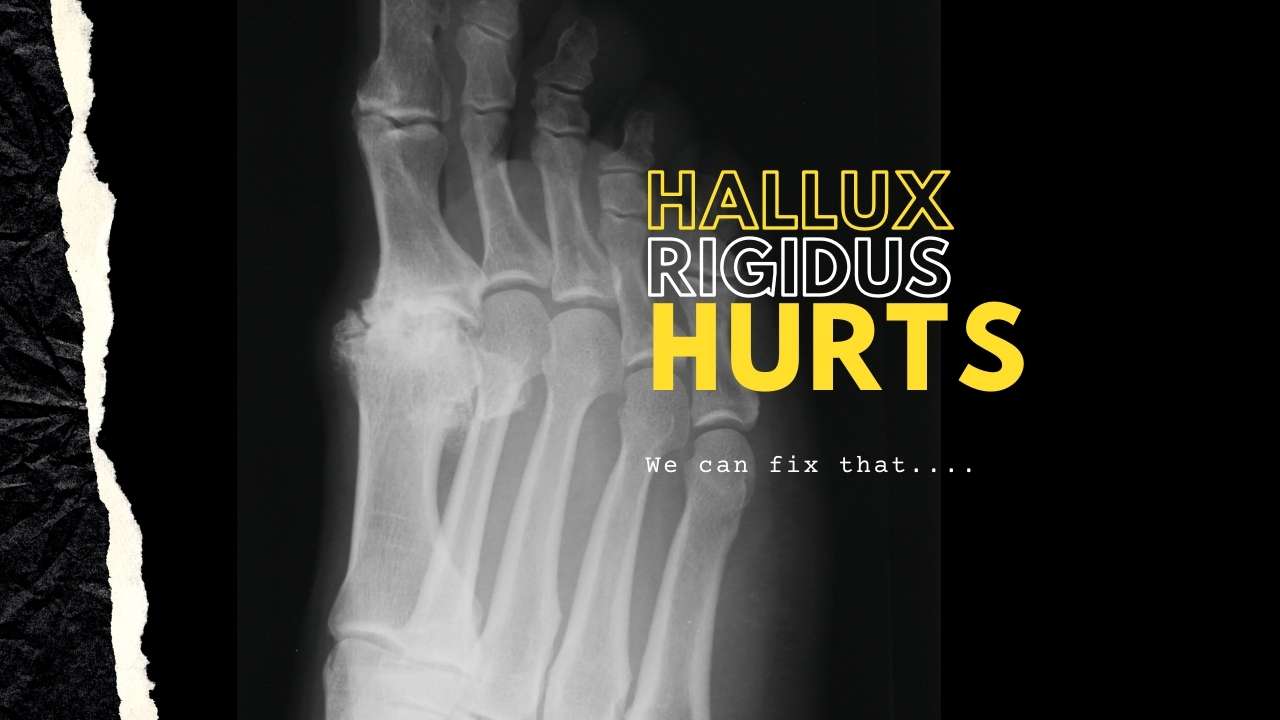At the base of the big toe is a joint known as the metatarsophalangeal joint (MTPJ), which is the location of this condition that leads to stiffness and pain. In time, it becomes increasingly difficult to bend your big toe, until it becomes completely rigid.
As with certain other foot conditions, this one is progressive, which means that it will worsen with time and not improve on its own. In early stages, before the range of motion is quite limited, the condition is known as “hallux limitus.” If it helps, think of the difference between something like a spring clothespin that has limited movement and a one-piece straight one that won’t bend at all.
There are two primary causes for this condition: structural abnormalities and faulty biomechanics. An example of a structural abnormality is having fallen arches. Going hand-in-hand with flat feet is overpronation, which is a faulty biomechanical process that makes an individual more susceptible to this condition. Flat feet and overpronation both lead to osteoarthritis (think “wear and tear” version of arthritis), which results in the stiffness in the MTPJ.
For some individuals, the condition is due to an inherited foot structure, and they are simply more prone to it. For others, it happens as a result of overuse, particularly for those who work in jobs that place excessive stress on the big toe. Workers who frequently squat or stoop, or those who play catcher in baseball or softball, are more at risk for a stiff big toe. Other causes include injury and inflammatory diseases (gout, rheumatoid arthritis, etc.).

Initial symptoms of this problem include:
As the condition becomes more progressive, symptoms become more severe, including:
Early treatment for hallux rigidus can help to postpone and, in some cases, event prevent the need for surgery to correct the condition. Conservative treatment measures include:
If you have continued pain in spite of the non-invasive treatments above, you may require surgery to reduce or eliminate it. There are various procedures that may be used, but we will discuss these options with you and take into consideration such factors as age and activity levels.
Regardless as to which treatment will prove most effective, you can find comfort in the fact that Achilles Foot and Ankle are the area’s top podiatrists. We have the expertise and knowledge to provide the effective results you need. Contact us today by calling (804) 273-1717 or use our online form to request your appointment today.
+1-804-273-1717

